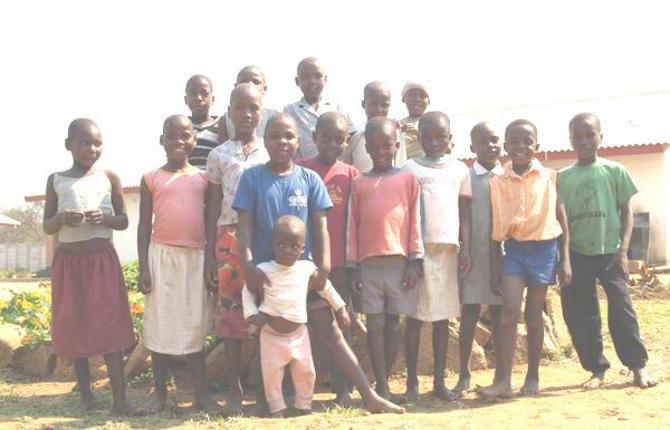
Share your Thanksgiving with orphans
The children at Alpha Cottage orphanage in near Harare, Zimbabwe, have a song they sing for visitors: "We want to thank you, thank you! We want to thank you, thank you! We want to thank you for the rest of our lives!" These children have a lot to be thankful for. They have a roof over their heads, they’re getting an education, and most importantly they are getting regular meals every day provided by CARE. As Canadian sit down to our Thanksgiving dinners this weekend, hundreds of thousands more Africans across the continent will not be not be so lucky. Africa is in the grips of a food crisis.
– The estimated food gap for Zimbabwe this year, the gap between what is produced and what is needed, is 1.2 million metric tonnes. The World Food Program is appealing for $151 million to purchase some 140,000 metric tonnes of maize grain to fill the food aid gap.
– In Ethiopia the UN is reporting a food aid shortfall of approximately 275,000 metric tonnes. Over 730,000 vulnerable individuals in Ethiopia are being targeted for supplementary food aid, including 75,000 children under five years of age who are threatened by severe acute malnutrition.
– In Kenya it is estimated the number of food-insecure individuals could rise from 1.1 million to as high as six million. The production of maize – a staple food crop – from the last harvest was down 14 per cent, and the government of Kenya predicts the maize shortfall could be as high as 270,000 metric tones by mid 2009. In some communities where CARE works, households are spending an average 80 per cent of their incomes on food.
– In the Karamoja region of Uganda, for the past seven out of 10 years the rains have been less than normal; as a result between 50,000 and 100,000 people – mainly women and children – will require emergency supplementary or therapeutic feeding.
As food aid stocks fall short in many regions of Africa the rations being distributed to needy and vulnerable people are being decreased, increasing the threat of malnutrition and all the resulting health consequences. The food crisis is being driven by skyrocketing food costs and decreasing production resulting from factors including climate change, biofuels production, and high costs for agricultural inputs such as fuel and fertilizer.
As Canadians give thanks for plenty, CARE is asking them to remember those who will not be sitting down to a banquet. CARE is also calling on the next Government of Canada, who will be elected following Thanksgiving weekend, to meet Canada’s United Nation’s Millennium Goals commitments and to invest, in both emergency food aid, but also in agricultural and development programs that will help Africans and vulnerable people around the world to achieve independent food security.
"This Thanksgiving is the perfect opportunity for Canadians to share the bounty we have been blessed with," said Kevin McCort, CEO of CARE Canada. "Imagine a world where everyone gets to sit down to a bountiful dinner. That is what CARE is working for, and you can help us do it."
Canadians can see and hear the children of Alpha Cottage orphanage on the CARE Canada web site: www.care.ca







